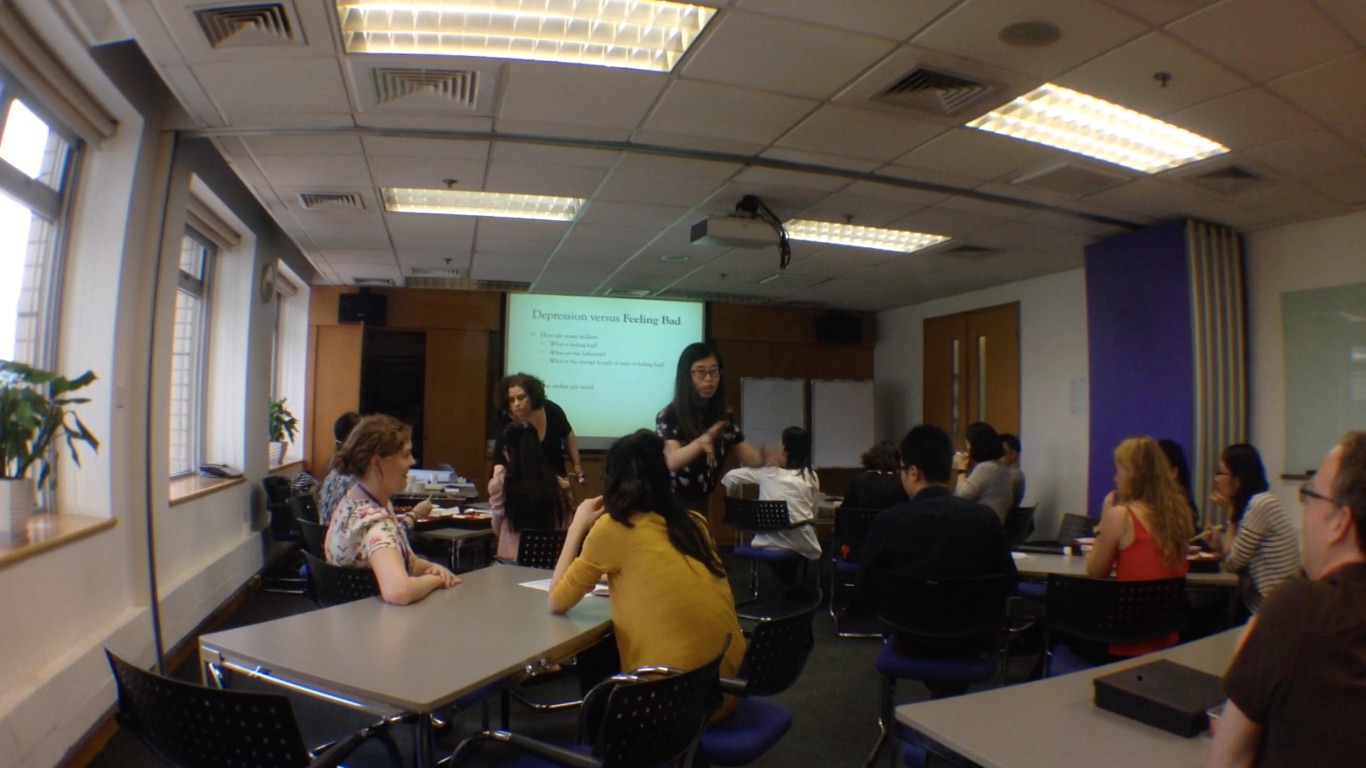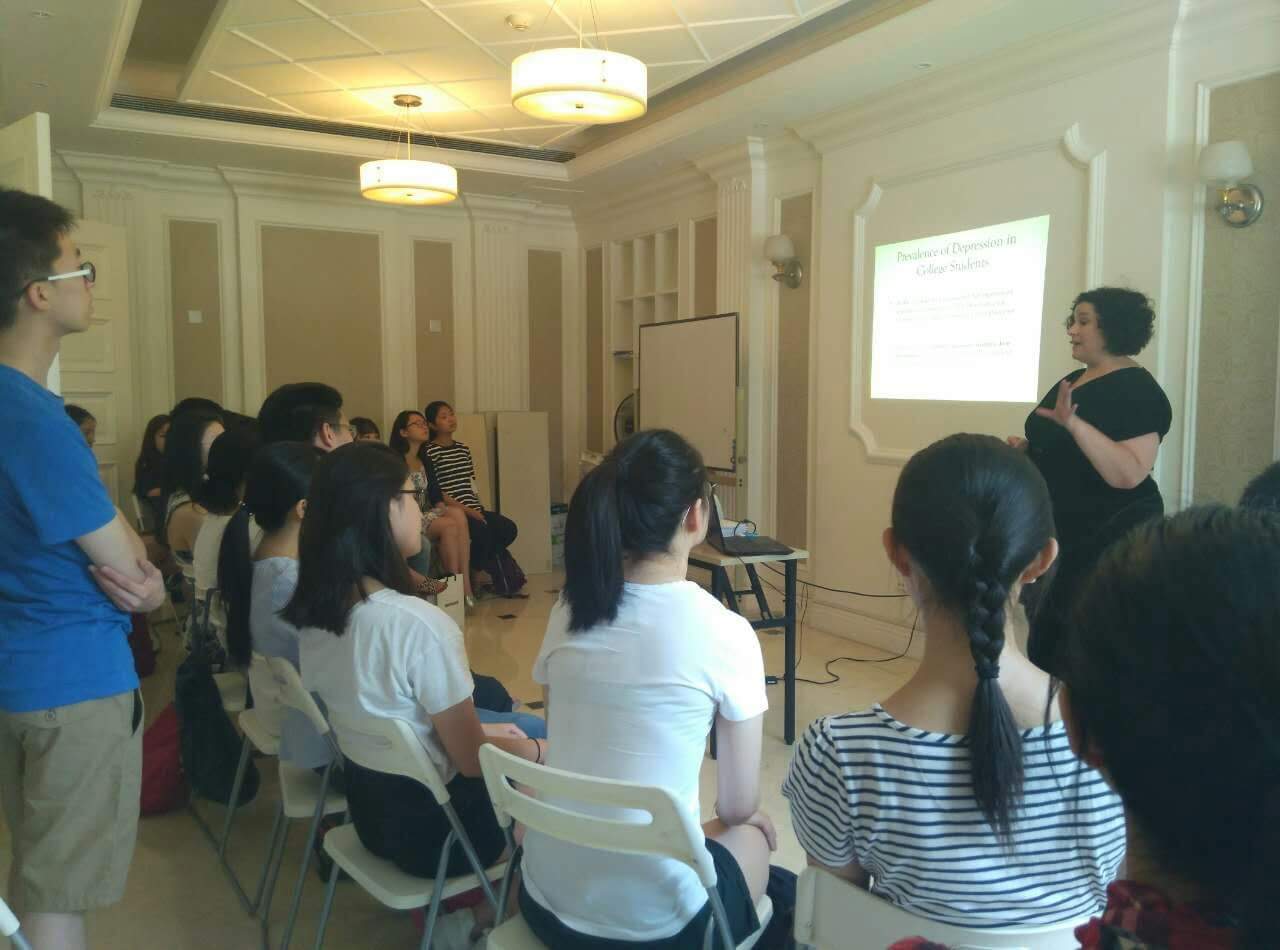When Sichuan-native Xiaojie Qin was faced with mental health challenges, she found that in China, support groups were difficult to find.
Now resident in Beijing, Qin is the founder of CandleX, a mental health NGO that runs awareness programs and a psycho-social support group for those experiencing mental health problems.

Founder of CandleX, Xiaojie Qin
That’s sat down with Qin to discuss what kind of support CandleX offers, mental health challenges faced by the expat and local communities in China, the effects of COVID-19 and the future of mental health support in the Middle Kingdom.
How CandleX was founded
Qin stresses that the organization was very much borne out of her own struggle with mental health.
“I was born in the 1980s. Back then, there was virtually no mental health awareness. Even clinical terms like depression were generally considered to be under the umbrella of just ‘being crazy.’”
She says that after experiencing episodes of depression in her 20s, she decided she needed to do something about it.
After talking at a public event, she got a lot of positive feedback. That led to the idea of creating an organization.
CandleX is now in its seventh year. The key idea is to raise awareness of mental health and provide support for people who are depressed, anxious or have bipolar disorder.
Back in 2015 when the organization was first set up, Qin recalls that there were not many mental health support groups in China that also supported the international community. Lifeline Shanghai was around at the time, but offered services different to those of CandleX.
“There were people who were doing things related to mental health. For instance, there were counsellors coming into Beijing. However, there was no one particular person in China doing anything long-lasting.”

A CandleX workshop with the British Council focused on depression
Support offered by CandleX
The support group, available both online and offline, is one of the organization’s main events. There are also community mental health activities which involve companies and various other organizations.
Qin stresses that these are strictly psycho-social support groups and not mental health support with a professional.
Other activities have a more novel approach such as the movie night and the art campaign.
Qin emphasizes that they try and make activities as memorable as possible.
“The approach that we are using is not to just sit down and have them (participants) listen to some really sad stories. Instead, it’s actually pretty dynamic and we try to reach as many people as possible.”

CandleX participants having fun on the Great Wall
One area which CandleX has focused upon in recent years is teenagers’ and young adults’ mental health.
“If you look at the data, it tells us that between the ages of 15 and 24, people are at a vulnerable stage in terms of their mental health. People who suffer from mental illness are likely to have their first episode sometime between those ages.”
The World Health Organization suggests that up to half of mental illnesses begin as early as age 14 and that many go unreported and untreated.
This led CandleX to launch the Teens’ Open Letter in which teenagers write about their experiences of battling mental health. Participants have written about bullying, eating disorders, depression and other problems.

A CandleX workshop with teenagers
Another key focus is that of Chinese students studying overseas. The mental health of those studying abroad has come under the spotlight in recent years given reports of suicides among Chinese student communities. Many struggle to cope with the pressure of academic expectations and adapting to a new way of life in a foreign country.
The issue was reported on by China Daily back in 2017. The article included the story of Rong Xin, a 27 year-old doctoral candidate at the University of Michigan in the United States.
Shortly before taking his own life, Rong had left a message about depression in academia in late 2016, saying the problem was “significantly underestimated.”
“This (suicide) happens among those who are high achievers. So, CandleX started working with this company that deals with students’ applications to go and study overseas. And every year before heading abroad, we will do a workshop with the students and their parents. This helps them to prepare. This year, we are going to provide workshops to the company staff on how to deal with students suffering from mental health issues.”
Mental health among expats in China
In January 2021, CandleX launched a Chinese support service for the first time. Until that time, services have been solely in English. This means that for the most part, the organization has dealt with English-speaking expats and what Qin describes as “internationally-minded” locals.
And there is good reason for targeting expats when it comes to mental health support. US insurance giant Aetna reported in 2017 that mental health issues had been on the rise among expat communities across the globe. Depression and anxiety ranked as the first and second most prominent issues respectively between 2014 and 2016 among Aetna members.
So, can expats in China easily access mental health support? According to Qin, it largely depends on their financial situation.
“If they do have the means, they can go to some of the big international hospitals. However, without those resources, it can be difficult because it’s simply expensive. They then end up not knowing what to do.”
Qin recalls dealing with several incidents of mental health emergencies among expats in Beijing, one of which involved a foreign embassy reaching out to CandleX regarding one of its country's citizens.
“I think some expats are at higher risk. They may move abroad as a way to cope with their problems. They hope that moving will make their problems go away and things will be different. They arrive and realize that actually, things are still the same. And then, the depression kicks in.”
Against this backdrop, CandleX’s pscho-social support can be a lifeline for many expats in China facing mental health problems.
How COVID-19 has affected the work of CandleX
Across the globe, the COVID-19 pandemic has brought mental health under the spotlight. Lockdowns have led many people to spend excessive amounts of time in isolation, while economic hardship and job losses have added an extra level of stress.
Like in many industries, a lot of CandleX’s work has moved online as a result of the pandemic. However, Qin says that in terms of the numbers of people making use of the CandleX support group, the pandemic period saw a drop before returning to normal levels.
“I was surprised by this. Part of the reason may have been because some people we would usually deal with were stuck outside of China. When those people came back, the number did start to increase.”
She says the biggest change she’s seen as a result of COVID-19 is that talking about mental health has become normalized.
“COVID definitely gives people a pass to talk about mental health.”
The future of mental health support in China
Mental health issues which were once neglected in the Middle Kingdom are now being taken more seriously for good reason.
China Daily reported that an estimated 90 million people in China suffer from depression, with around 90% not getting any effective treatment. Other research furthermore suggests that mental disorders have generally become more common across China in the last 30 years.
China’s resources for dealing with mental health have not always been at the same level as other countries. A 2017 WHO report showed there were 1.7 psychiatrists per 100,000 people compared with 12 per 100,000 in the United States.
Qin points out that in the past, mental health support has largely been focused on specific groups such as ‘left-behind children.’ However, many now recognize the need to make support more widely available.
One issue which Qin says has helped bring mental health into the spotlight on a national scale is that of ‘996’ work culture. The term refers to jobs in which employees are required to work six days per week from 9am until 9pm.
Many questioned the phenomenon earlier this year following the death of an employee at ecommerce group Pinduoduo. The employee in question had reportedly been working a lot of overtime prior to her death.
READ MORE: Death of Tech Worker Renews Concerns Over ‘996’ Work Culture
“With the 996-work culture, more and more people are starting to recognize that actually, mental health can affect a whole number of people. The government has known this for a very long time.”
The government is indeed devising policies designed to deal more effectively with mental health challenges in China. The country’s National Health Commission plans to introduce screening for vulnerable groups and require medical institutions as well as universities, high school and colleges to re-evaluate mental health policies.
The government furthermore plans to set up mental health outpatient services in 40% of the general hospitals at grade two and above in pilot areas by the end of 2021, a move catalysed by the pandemic.
Qin says that along with the rest of her counsellors’ group, she will take a careful look at the new policies.
Whether said policies will be effectively implemented remains to be seen. However, what is clear is that mental health is now very much taken seriously across the Middle Kingdom.
And there’s no doubt that alongside clinical services, CandleX will continue to provide psycho-social support for anyone who needs it.
READ MORE: China's Long March to Addressing Mental Health Issues
This interview has been edited for clarity and brevity.
If you want to find out more about CandleX, search for the WeChat ID (candlex2015) and follow the official WeChat account.
[All images via Xiaojie Qin/CandleX]





















0 User Comments